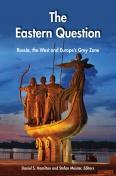Unsuccessful attempts by Russia to push Ukraine to join the Moscow-led Eurasian Economic Union and successful Russian pressure on the country to drop its Association Agreement with the EU led to political protests in Kiev in fall 2013. In spring 2014, while revolution brought pro-European regime change in Ukraine, Russia occupied and annexed Crimea and started a war in Donbas, violating international law, various bilateral and multilateral agreements as well as undermining the foundations of the post-Cold War order in Europe. It led to the most serious crisis in Russian–Western relations since the end of the Cold War, involving mutual sanctions by the United States, the EU and some other Western allies on one side and Russia on the other.
However grave the crisis is, these events are yet another in a whole series of crises between Russia and the West over the 25 years since the breakup of the Soviet Union. On the other hand we also witnessed periods of quite positive, pragmatic cooperation between the two during that time. Unfortunately, none of these lasted long, nor was able to create a critical mass allowing for a positive breakthrough in mutual relations.
This chapter is a modest attempt to offer some interpretations that may be helpful in answering questions: why it has happened and where we should go from here? In the first part it assesses differences between Russia and the West related to perceptions, political cultures, values and interests. In the second part it provides several conclusions based on analysis of past periods of both cooperation and conflict between the two sides. In the third part it gives recommendations on Western policies toward Russia: what approaches should be avoided and why, as well as what policies should be pursued.
Download the full chapter by clicking on the box at right.
About the author:
Marek Menkiszak is the Head of the Russian Department at the Centre for Eastern Studies (OSW) in Warsaw. From 1995 to 2003 he was a faculty member at the University of Warsaw’s Institute of International Relations. He has been a visiting fellow at the Transatlantic Academy and visiting researcher at the Finnish Institute of International Affairs in Helsinki, and a member of the EU–Russia Task Force at the EU Institute for Security Studies in Paris. Since 1995 he has been an author for Rocznik Strategiczny (Strategic Yearbook) and has written numerous articles for publication. He received his PhD and MA from the Institute of International Relations at the University of Warsaw.

